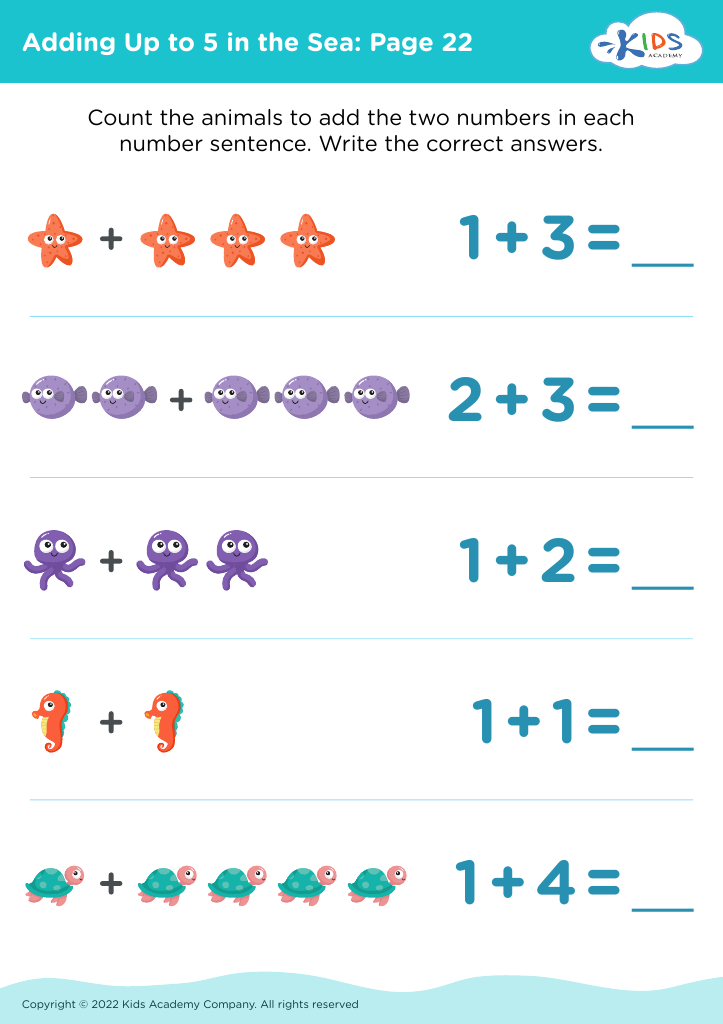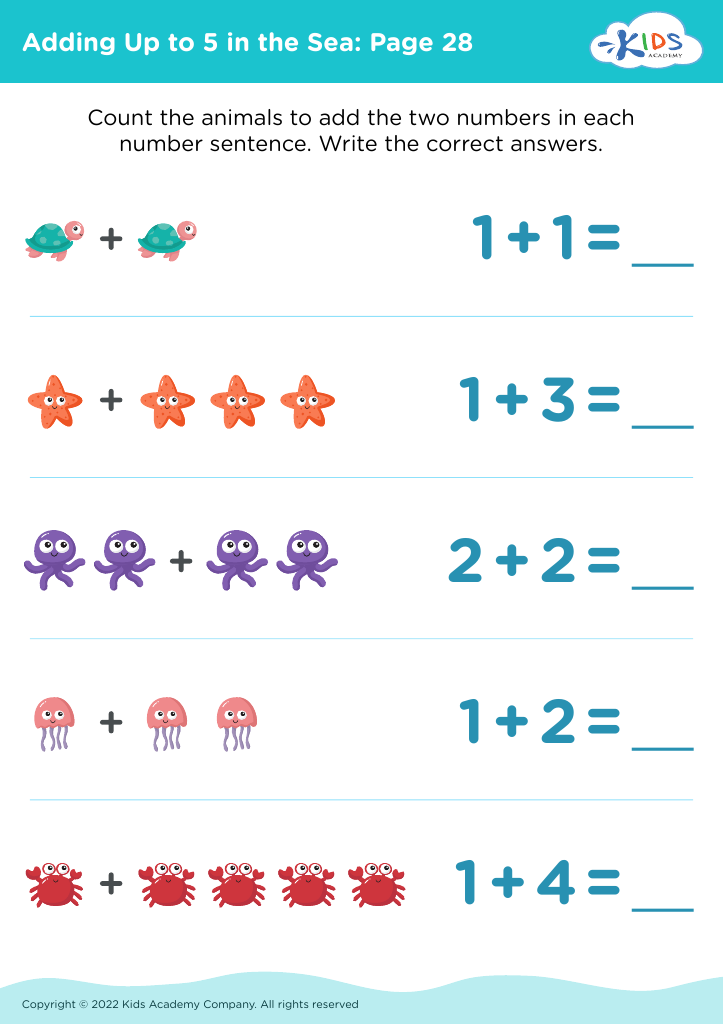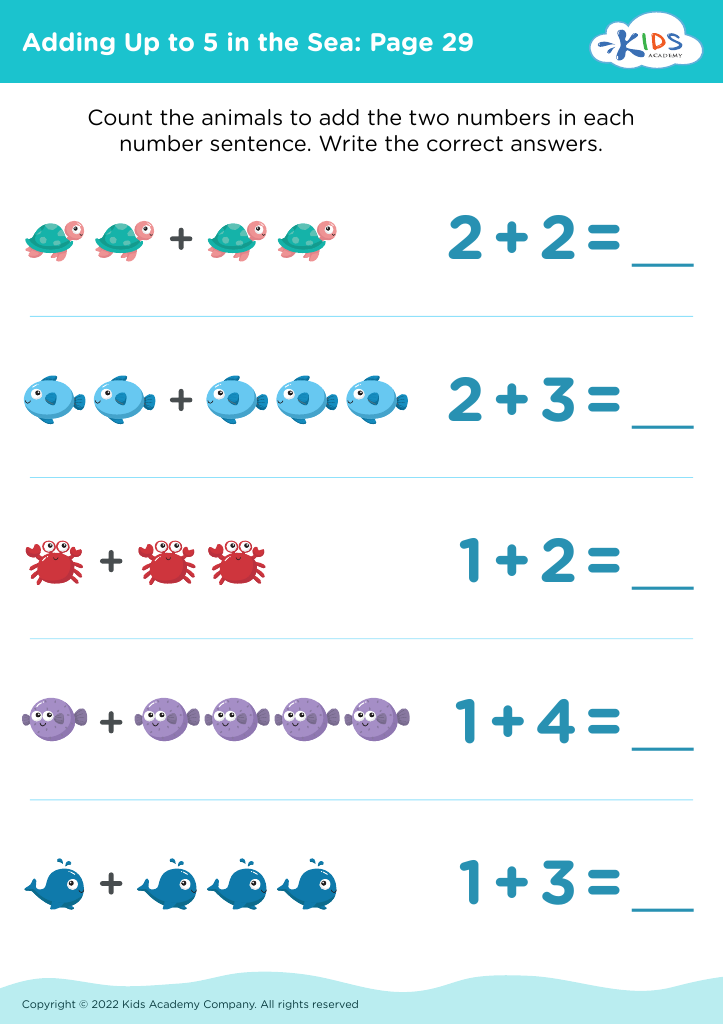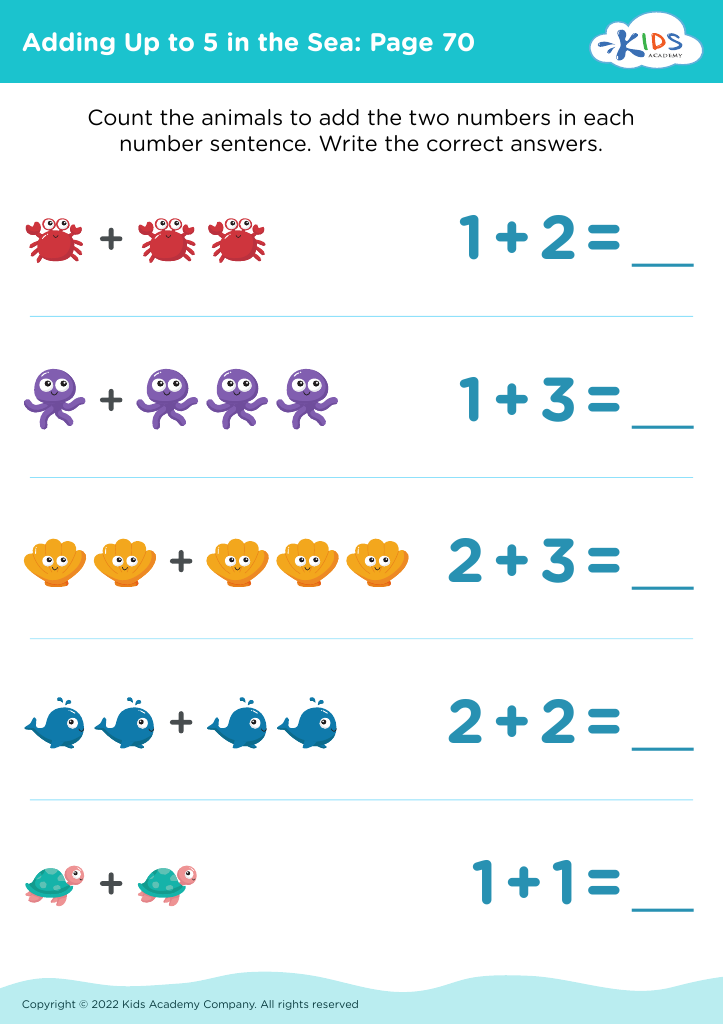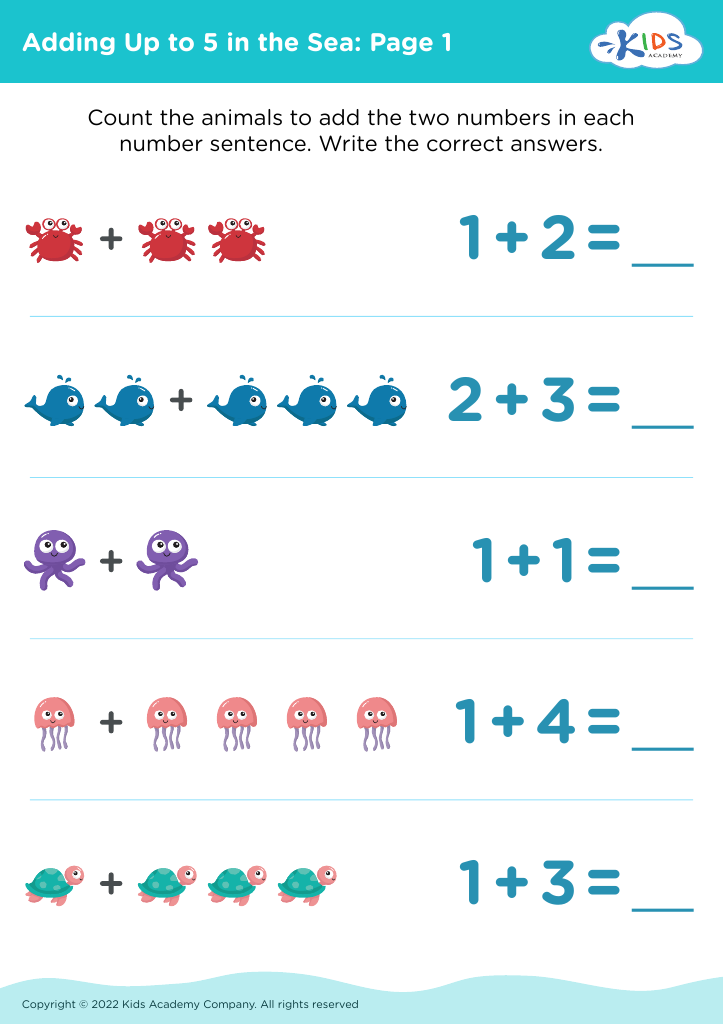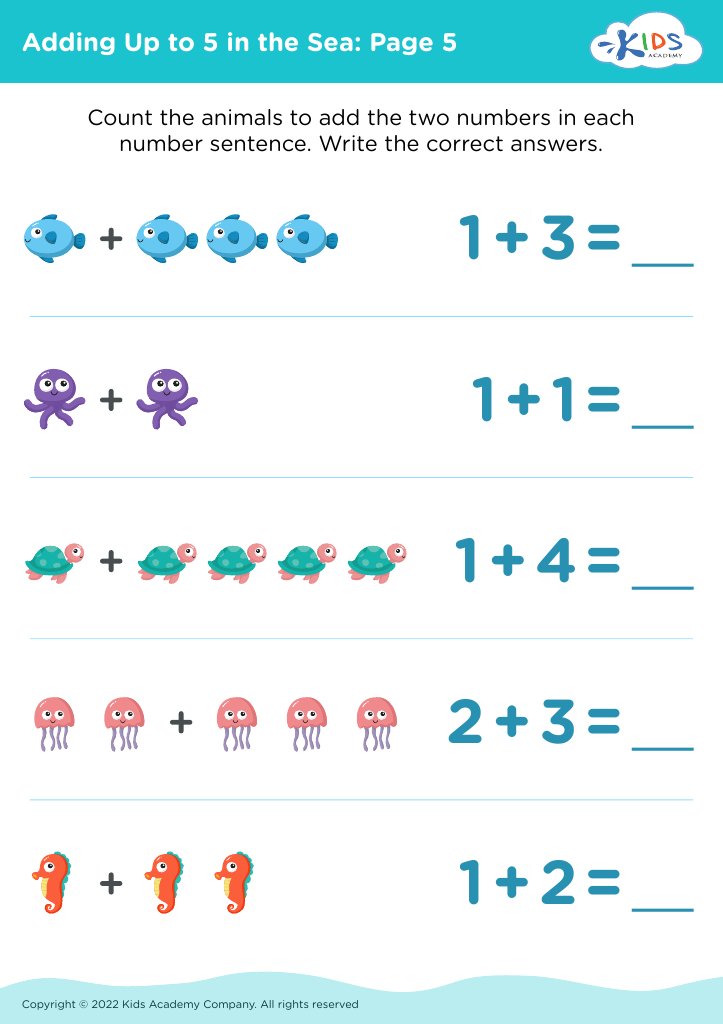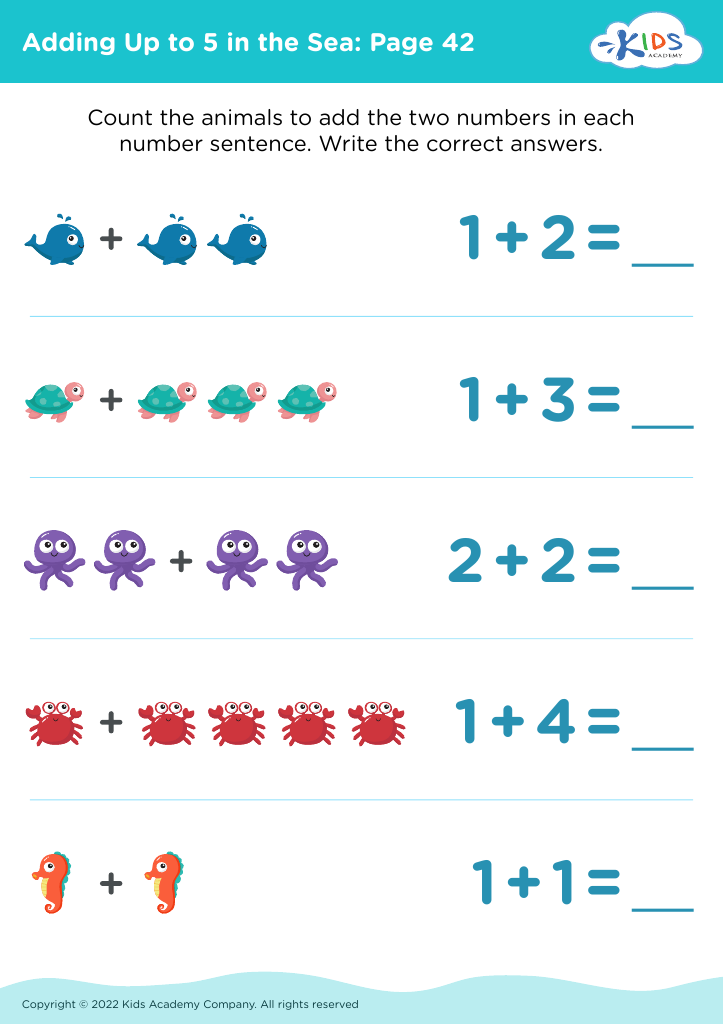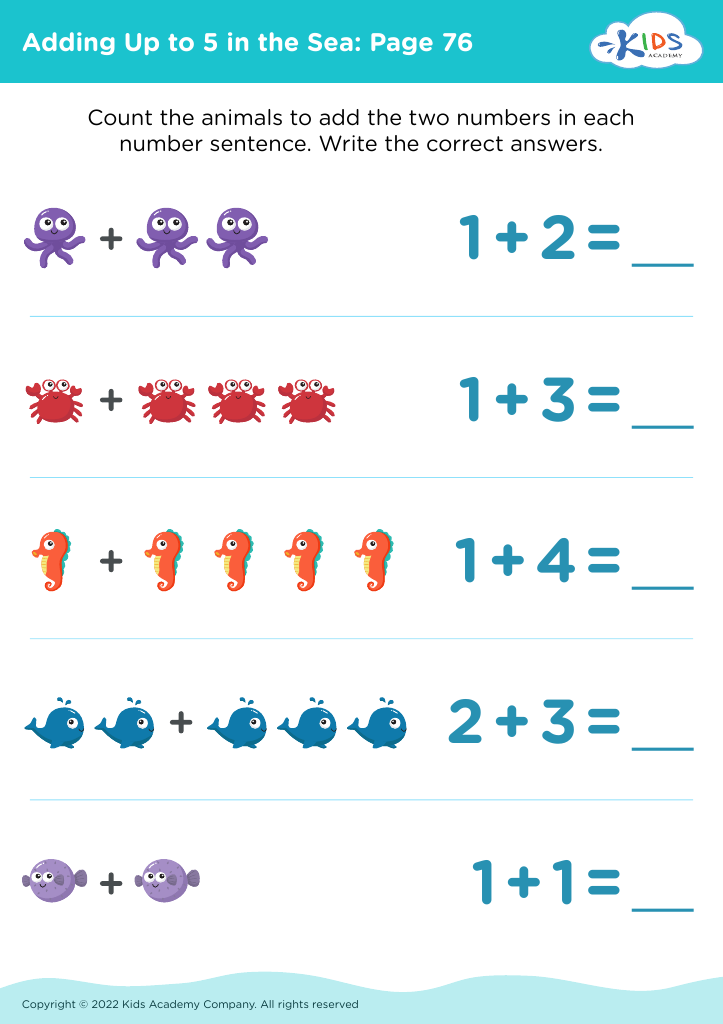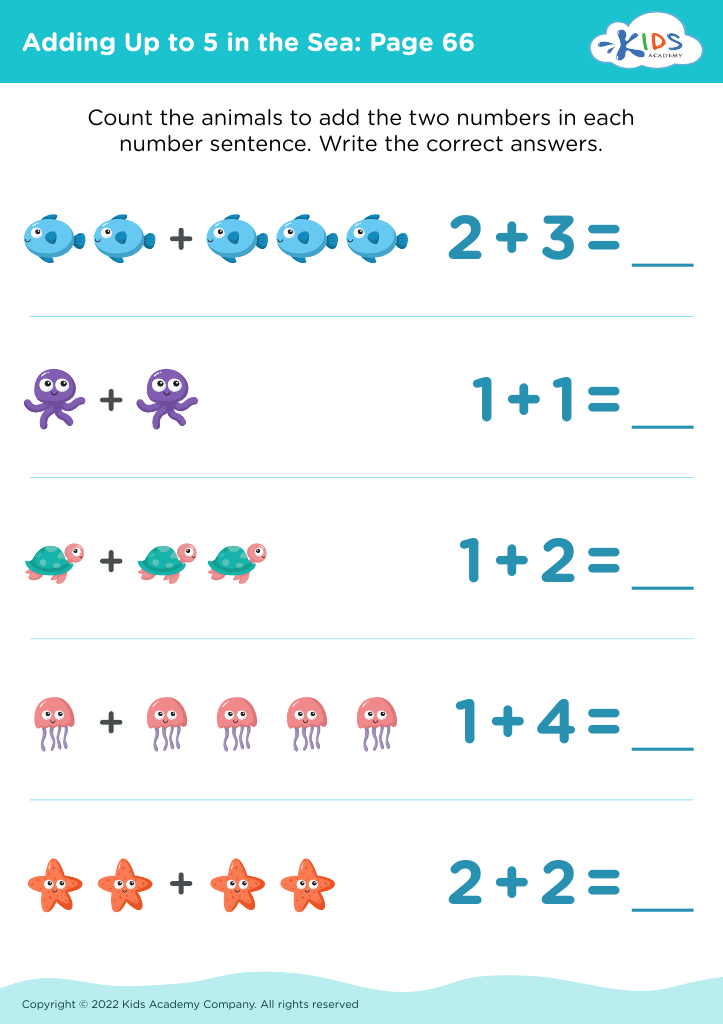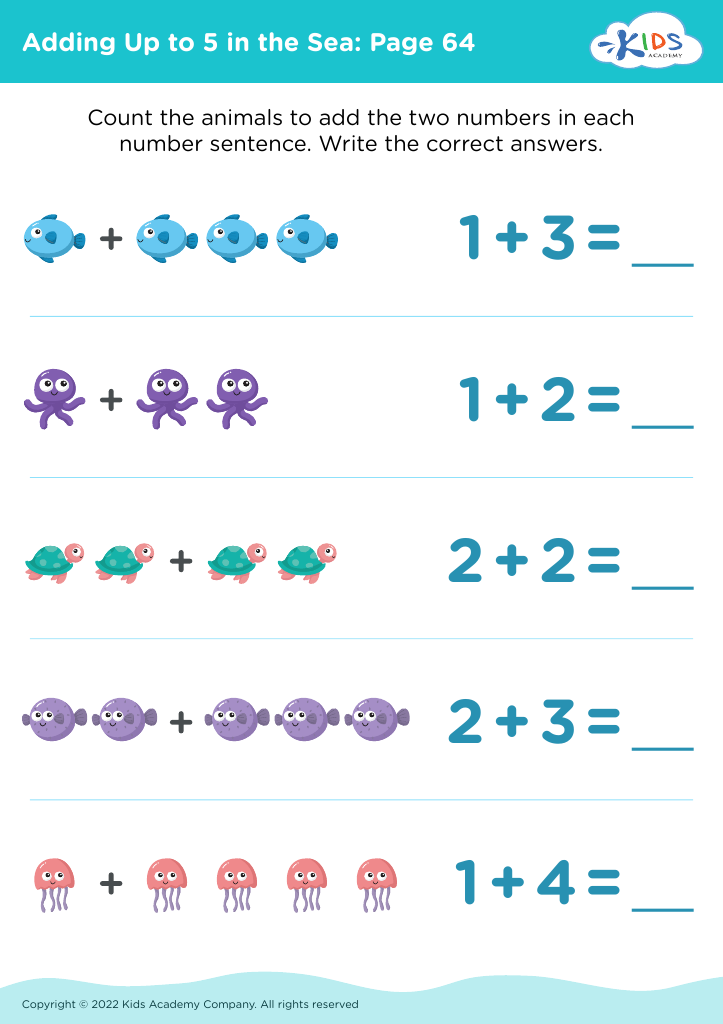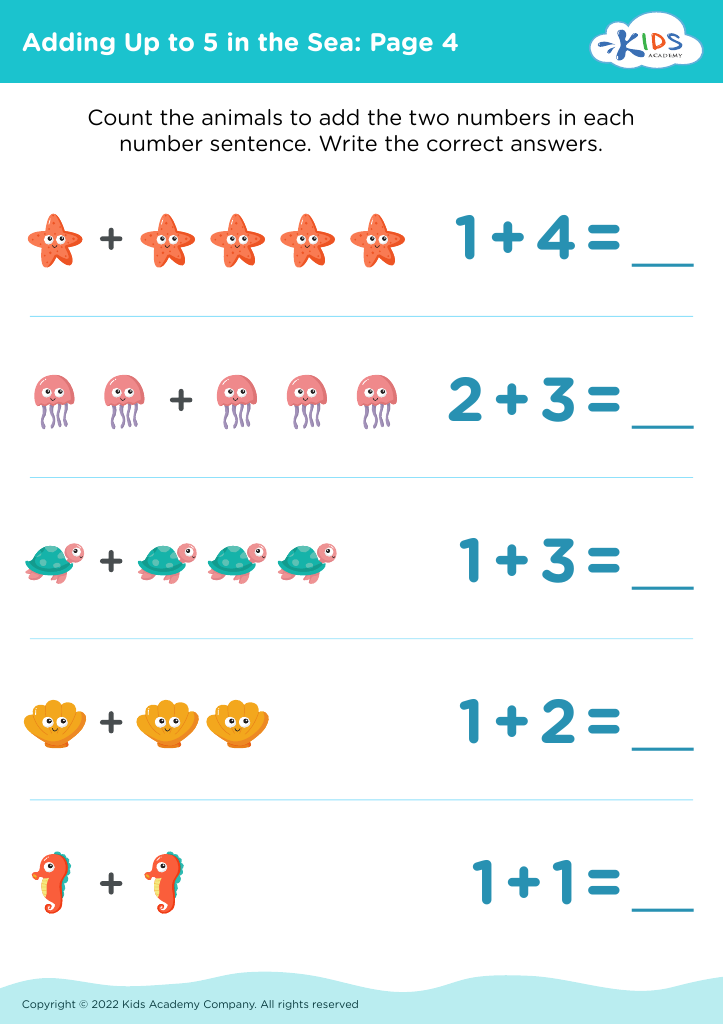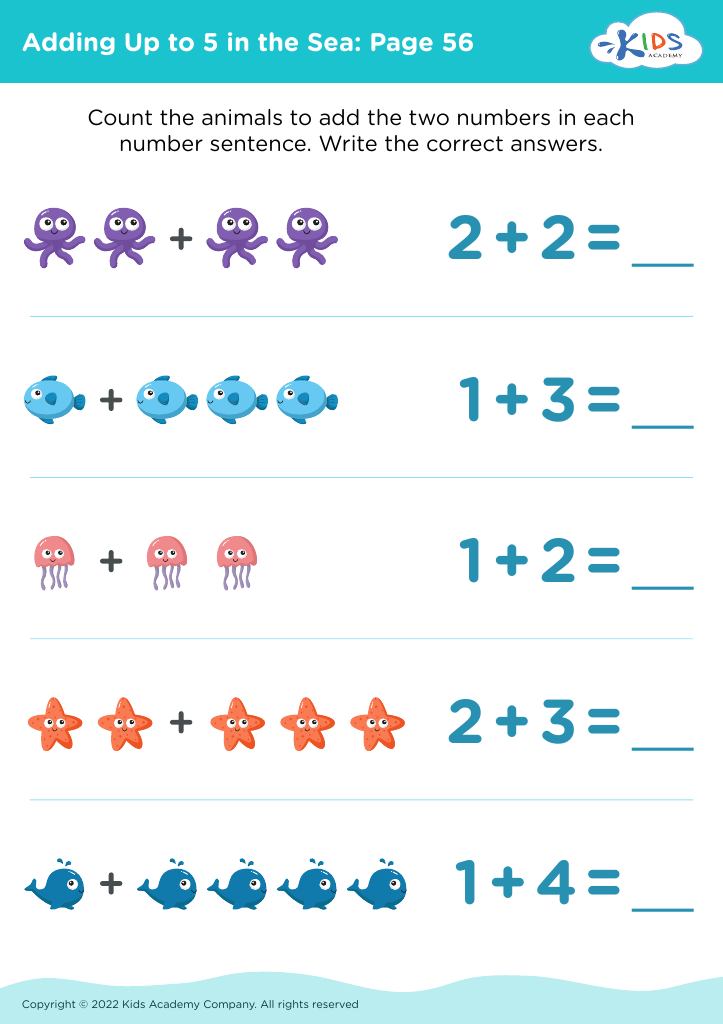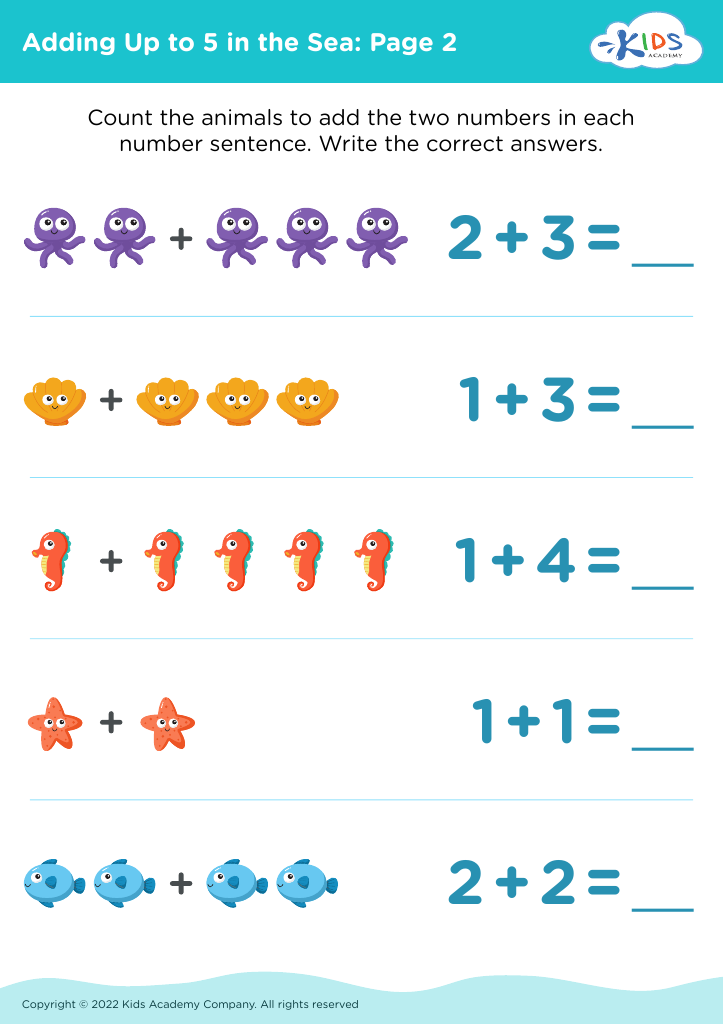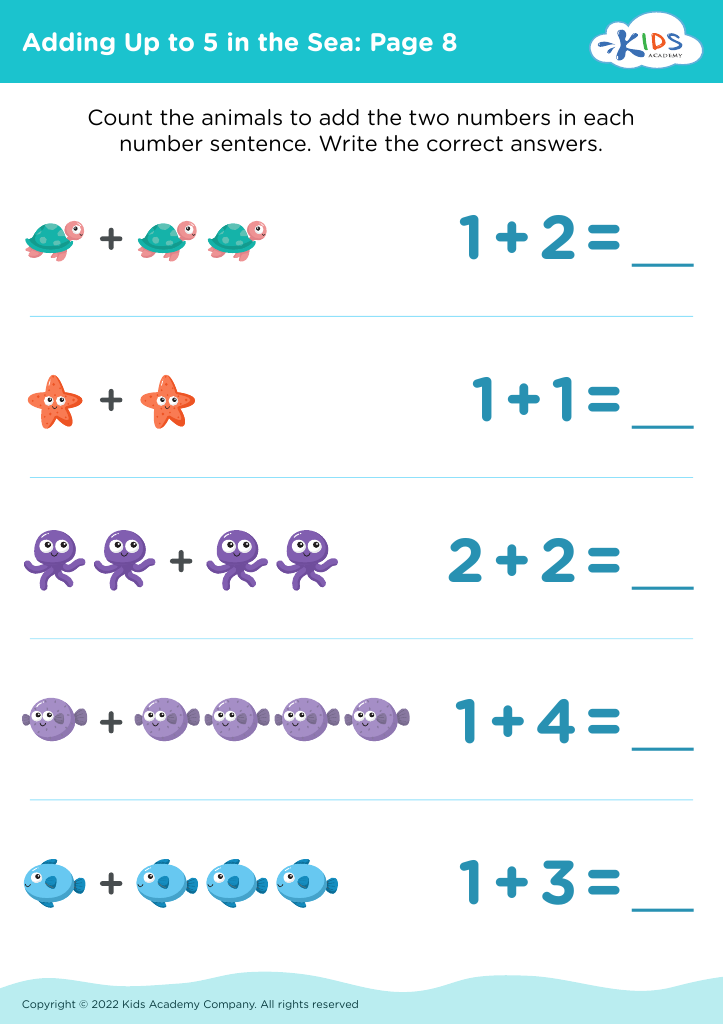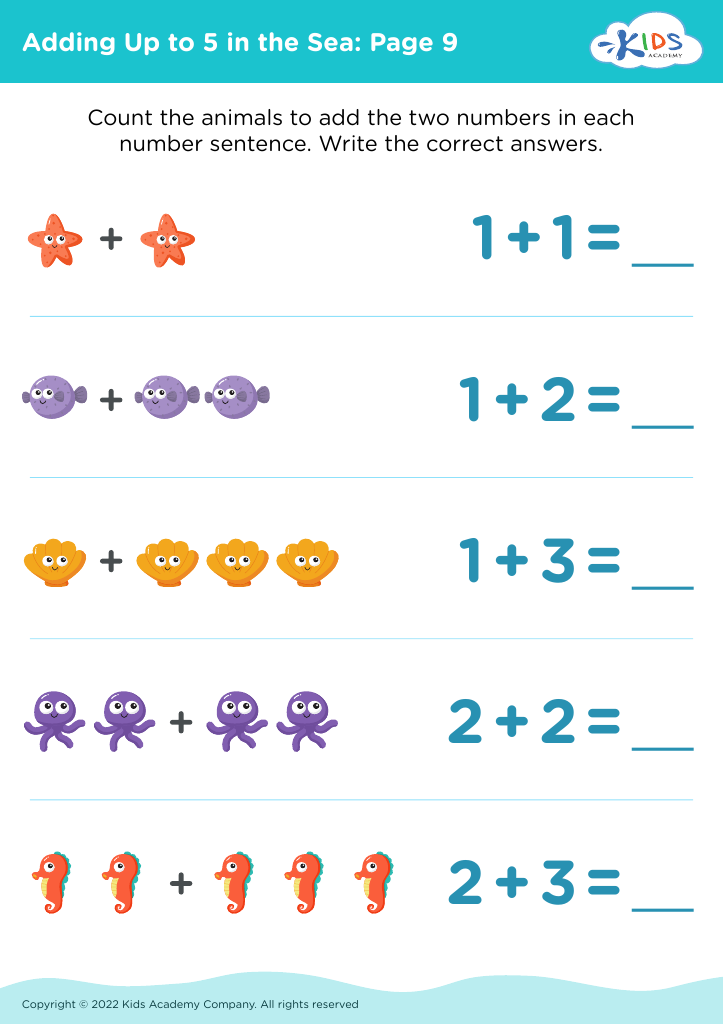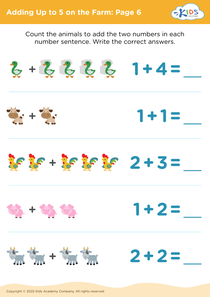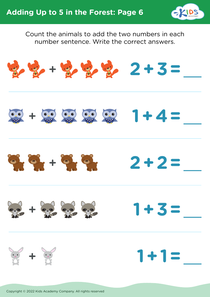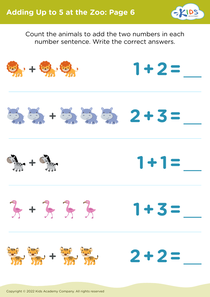Addition skills Adding in the Sea Worksheets for Ages 4-7
15 filtered results
-
From - To
Dive into a world of fun and learning with our "Adding in the Sea Worksheets" for ages 4-7! Designed to make addition engaging and accessible, these worksheets feature delightful underwater themes and colorful visuals that capture young learners’ attention. Through interactive exercises, children will practice basic addition skills, reinforcing their understanding of numbers in a playful way. As they explore playful ocean creatures, kids will enhance their math confidence while developing fine motor skills. Perfect for both classroom activities and at-home learning, our worksheets offer an exciting opportunity for early math mastery. Dive in and let the learning begin!
Addition skills are foundational for young learners, particularly in a fun, engaging context like "Adding in the Sea." For children aged 4-7, mastering basic addition helps develop critical cognitive skills such as problem-solving and logical reasoning. The interactive nature of "Adding in the Sea" promotes a joyful learning environment, making numbers more relatable and less intimidating.
As children engage with playful sea-themed activities, they begin to see the relevance of math in everyday life, enhancing their intrinsic motivation to learn. This early exposure cultivates a positive attitude towards math, which is crucial for future academic success. Furthermore, developing strong addition skills aids in comprehension of more advanced concepts like subtraction, multiplication, and even early fractions later on.
For parents and teachers, fostering these skills is essential not only for academic growth but also for developing patience and perseverance in children as they navigate challenges in learning math. Early math skills also correlate with later achievement in various subjects, making it a priority. Overall, nurturing addition proficiency allows young learners to build confidence and prepares them for lifelong learning and exploration in a world increasingly dominated by numerical literacy.
